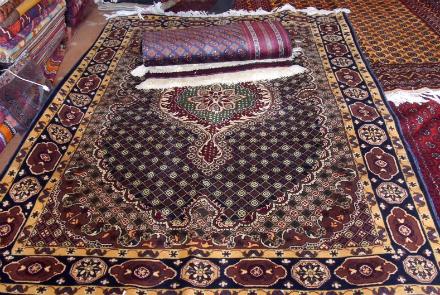Members of the Carpet Weavers’ Union in Kunduz say a lack of markets for the local carpets has negatively impacted the production of many carpet factories in the province.
The union members said they exported up to 120,000 square meters of carpets abroad every year but, according to them, the number has been critically reduced this year.
The industry owners called for government’s serious support for the sector.
“The home-made carpets, particularly from Kunduz, do not have market. There is few customers for them. The carpet industry owners have left Kunduz to other provinces and even some of them have gone out of the country,” said Abdullah Kalantari, head of the Carpet Weaving Union in Kunduz.
“Unfortunately our exports reduced since 2007 and 2008. There is no opportunity of exhibitions to send our products to Europe and other countries,” said Nasiba Holkar, chairperson of Women’s Affairs Directorate in the province.
A lack of required support, lack of raw materials, standard carpet processing machines, and scarce facilities for washing and packaging of the home-made carpets are the reasons which have raised the cost of the products. This situation has affected the quantity of the products in the country – particularly in Kunduz – factory owners said.
Kunduz officials said they will continue their efforts to support the industry and boost its marketing out of Afghanistan.
“The governor’s office is committed to building an industrial park for carpet industry owners in Dasht-e-Abdan area in Kunduz province,” said Nematullah Temori, spokesman for Kunduz governor.
Factory owners say the Iranian, Turkmen, Belgium and Turkish carpets have dominated the local markets. Despite their high prices, they have more buyers than for Afghan products.

